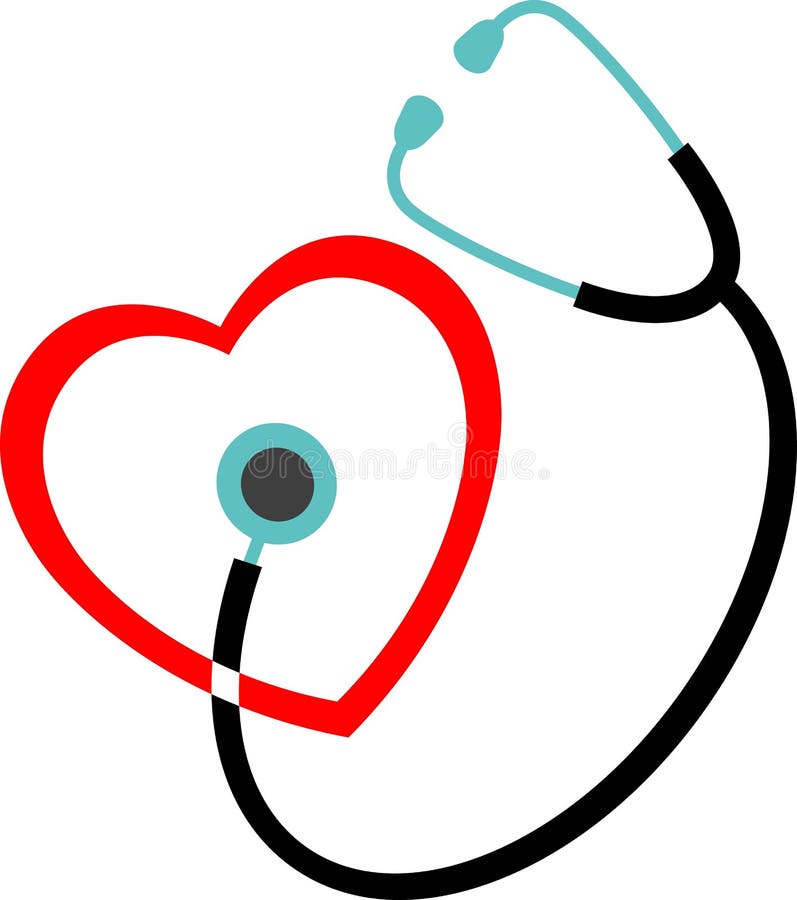Where can I find the best Cardiologist near me for ongoing care?
Where can I find the best Cardiologist near me for ongoing care?
Blog Article
Recognizing the Importance of Cardiology in Modern Health Care Services
Cardiology plays an important function in modern medical care, particularly as heart problem proceeds to be the leading cause of death worldwide. Advancements in diagnostics and therapy have actually transformed individual care, making it possible for earlier treatments and improved end results. Furthermore, the change towards preventative cardiology empowers individuals to handle their wellness proactively. As technology remains to develop, the assimilation of innovative solutions might better redefine cardiology's influence on public health, triggering a more detailed assessment of arising fads and their effects.
The Frequency of Heart Problem and Its Influence on Public Health
Heart disease remains the leading cause of death globally, its effect prolongs far beyond specific clients to influence public health and wellness systems and economies. The high prevalence of heart disease puts a considerable strain on healthcare resources, demanding increased financing for avoidance, recovery, and therapy programs. Public wellness efforts have to attend to risk variables such as weight problems, cigarette smoking, and inactive way of lives, which contribute significantly to the increasing incidence of heart conditions.Moreover, the financial worry related to heart problem is immense, encompassing not only direct medical expenses but also indirect expenditures connected to shed performance and premature mortality. Neighborhoods encounter difficulties in handling these prices, commonly resulting in differences in medical care accessibility and end results. As the population ages and lifestyle-related dangers remain to rise, the seriousness for effective cardiology treatments becomes critical. Addressing heart disease is not only a matter of individual health yet also a vital public health concern.
Developments in Cardiac Diagnostics and Imaging Techniques
Current advancements in heart diagnostics and imaging strategies have actually changed the area of cardiology, boosting the ability to identify and monitor cardiovascular disease. Strategies such as cardiac MRI, CT angiography, and echocardiography have ended up being increasingly innovative, supplying comprehensive photos of heart structures and functions. These methods permit the very early identification of conditions like coronary artery condition, heart failure, and valvular disorders.Moreover, improvements in non-invasive diagnostics, such as wearable innovation and remote monitoring tools, have empowered individuals and medical care service providers. These tools assist in real-time tracking of heart rhythms and various other essential indications, bring about timely interventions. Furthermore, expert system is being integrated right into imaging evaluation, enhancing accuracy and efficiency in diagnosis.
Innovations in Treatment Options for Heart Conditions
Recent innovations in cardiology have actually resulted in considerable innovations in therapy options for heart disease. These include advanced medical techniques that improve step-by-step end results and arising medicines that provide new avenues for treatment. As the field progresses, these developments play a vital role in boosting client care and results.
Advanced Surgical Techniques
Technologies in surgical techniques have transformed the landscape of cardiology, offering new expect clients with heart problems. Minimally intrusive procedures, such as catheter-based interventions, have actually substantially lowered recuperation times and hospital keeps. Strategies like robotic-assisted surgery improve accuracy, allowing doctors to browse complicated physiological structures with greater precision. Moreover, advancements in imaging modern technology facilitate real-time visualization throughout procedures, improving results. Transcatheter aortic valve substitute (TAVR) exemplifies a breakthrough in dealing with aortic stenosis, enabling valve substitute without open-heart surgical treatment. Furthermore, hybrid techniques that combine catheter-based and surgical techniques provide customized services for various heart problems. These innovative surgical strategies not just enhance individual security however also broaden therapy alternatives, underscoring the important function of advancement in modern cardiology methods.
Emerging Therapies and medicines
As the landscape of cardiology remains to progress, arising therapies and drugs play an essential function in enhancing therapy choices for heart disease. Advancements such as novel anticoagulants and advanced lipid-lowering representatives have transformed the administration of heart diseases, greatly decreasing individual morbidity and mortality. Furthermore, the advancement of genetics therapies and regenerative medication supplies encouraging opportunities for treating conditions formerly considered permanent. Professional tests are consistently exposing the efficacy of these treatments, pressing the borders of typical therapies. Additionally, the assimilation of electronic wellness innovations assists in personalized medication, permitting for customized therapy strategies based upon genetic and way of living elements. Jointly, these advancements highlight the vibrant nature of cardiology, improving person results and redefining requirements of treatment in modern health care.
The Duty of Preventive Cardiology in Person Care
Preventative cardiology plays an important duty in client treatment by concentrating on the recognition of danger factors that add to heart problem. Through way of life adjustment strategies and early discovery strategies, doctor can successfully minimize the occurrence of cardiovascular occasions - Dr Garcia. This proactive approach not just improves individual end results however additionally promotes long-term wellness
Danger Element Recognition
While cardiovascular conditions stay a leading reason for morbidity and death worldwide, efficient threat factor recognition functions as a keystone of preventive cardiology. Identifying danger factors such as high blood pressure, household, hyperlipidemia, and diabetic issues background is vital for very early treatment. Healthcare experts utilize different screening approaches to assess these variables, enabling tailored preventive actions. In addition, recognizing a patient's lifestyle choices, such as smoking and physical inactivity, even more informs threat assessments. This detailed examination allows clinicians to develop customized treatment strategies intended at mitigating threats. By focusing on danger variable recognition, health care systems can enhance person results and reduce the total worry of heart diseases, ultimately adding to improved public health methods and resource allotment.
Way Of Life Alteration Techniques
A plethora of studies highlights the essential function of lifestyle alteration strategies in lowering cardiovascular disease threat. These strategies encompass dietary adjustments, increased exercise, smoking cigarettes cessation, and weight management. By taking on a heart-healthy diet rich in fruits, veggies, entire grains, and lean healthy proteins, individuals can lower cholesterol degrees and high blood pressure. Regular physical task strengthens the heart and enhances general cardio wellness. Furthermore, giving up cigarette smoking substantially minimizes the threat of heart problem and improves recovery prices for those with status quo. Weight monitoring additionally adds to cardio health and wellness by minimizing other danger factors such as diabetes and high blood pressure. Carrying out these way of life changes not just advertises individual well-being however also acts as a foundation of precautionary cardiology in individual care.
Very Early Detection Techniques
Way of living modifications considerably contribute to minimizing heart disease risks, but they are most efficient when matched with early detection techniques. Preventive cardiology highlights the importance of recognizing possible heart problems before they intensify right into significant conditions. Techniques such as blood pressure surveillance, cholesterol testing, and progressed imaging innovations like echocardiograms More hints play critical duties in reviewing cardio health. Biomarkers and hereditary testing likewise boost the accuracy of early discovery, enabling tailored precautionary methods. Normal heart threat evaluations equip medical care carriers to step in proactively, potentially protecting against cardiovascular disease and strokes (Cardiology). By integrating these very early discovery methods right into routine treatment, patients can benefit from timely way of life treatments and targeted therapies, eventually improving results and boosting lifestyle
Integrating Innovation Into Cardiology Practices
As improvements in technology continue to reshape numerous fields, the integration of ingenious tools and systems right into cardiology practices has actually ended up being crucial for improving client treatment and end results. Telemedicine systems permit cardiologists to keep an eye on patients from another location, boosting accessibility to care while minimizing the problem on medical care centers. Wearable gadgets, such as smartwatches, enable continual heart rate monitoring, informing both doctors and clients to potential concerns in real-time. In addition, synthetic intelligence (AI) is being utilized to analyze huge quantities of cardiac information, helping in very early diagnosis and individualized treatment strategies. Advanced imaging strategies, including 3D echocardiography, improve visualization of heart structures, resulting in much more precise interventions. Digital health and wellness records (EHRs) see post improve patient details monitoring, making sure that cardiologists have instant access to crucial information. With each other, these technological advancements are changing cardiology, promoting proactive monitoring and enhanced health and wellness outcomes for people with cardiovascular conditions.
The Importance of Person Education And Learning and Interaction
Individual education and engagement play a critical role in the administration of cardiovascular health and wellness. By equipping individuals with knowledge regarding their problems, treatment choices, and way of living modifications, doctor encourage individuals to take an active duty in their care. This positive approach can result in boosted adherence to prescribed medications, nutritional adjustments, and exercise regimens, eventually lowering the risk of complications.Engagement likewise promotes a solid patient-provider relationship, encouraging open communication and depend on. When people feel informed and included, they are a lot more most likely to voice concerns and ask questions, which can cause far better professional outcomes. Additionally, educational resources, such as workshops or digital platforms, can improve understanding and promote self-management methods. On the whole, focusing on person education and learning and involvement is essential for enhancing cardiovascular health, improving quality of life, and decreasing healthcare costs related to cardiovascular diseases.
Future Trends in Cardiology and Their Possible Influence

Regularly Asked Inquiries
What Way Of Life Modifications Can Decrease Heart Problem Threat?
The existing question addresses lifestyle changes that can significantly decrease heart problem risk. Cardiology. Embracing a well balanced diet regimen, involving in normal physical activity, keeping a healthy and balanced weight, managing stress and anxiety, and staying clear of tobacco can especially improve cardio health and wellness
Just How Can I Identify Early Indicators of Heart Issues?
Recognizing very early indications of heart troubles includes monitoring signs and you could try this out symptoms such as upper body pain, shortness of breath, tiredness, and irregular heart beat. Timely understanding of these indicators can motivate required clinical assessment and intervention for much better outcomes.
What Are the Distinctions In Between Cardiologists and Cardiac Surgeons?
The distinctions between cardiologists and heart surgeons depend on their roles; cardiologists mostly diagnose and take care of heart problems through non-invasive approaches, while cardiac specialists execute surgeries to deal with architectural heart issues. Each plays an important, distinctive role.

How Frequently Should I Obtain My Heart Wellness Checked?
The regularity of heart medical examination varies based on individual threat aspects. Normally, adults should undertake analyses each to two years, while those with status quo might require even more frequent assessments as advised by healthcare specialists.
What Function Does Genetics Play in Cardiovascular Disease Threat?
Genetics significantly affects cardiovascular disease risk, with domestic patterns showing inherited conditions. Certain genes can incline individuals to high blood pressure, cholesterol problems, and other cardio problems, highlighting the relevance of genetic testing in reviewing heart health and wellness. Heart condition stays the leading reason of death globally, its effect extends far past private people to affect public health systems and economic situations. Public health campaigns should attend to risk aspects such as obesity, cigarette smoking, and less active way of lives, which add greatly to the increasing occurrence of heart conditions.Moreover, the economic problem linked with heart disease is enormous, incorporating not only direct clinical prices but likewise indirect expenditures connected to lost performance and early mortality. Preventative cardiology plays a vital duty in patient care by concentrating on the recognition of risk aspects that add to heart condition. Artificial intelligence (AI) and maker understanding are enhancing diagnostics and patient tracking, allowing very early discovery of heart diseases. The differences between cardiologists and cardiac specialists exist in their duties; cardiologists largely manage and diagnose heart conditions via non-invasive approaches, while heart doctors perform medical treatments to deal with architectural heart concerns.
Report this page